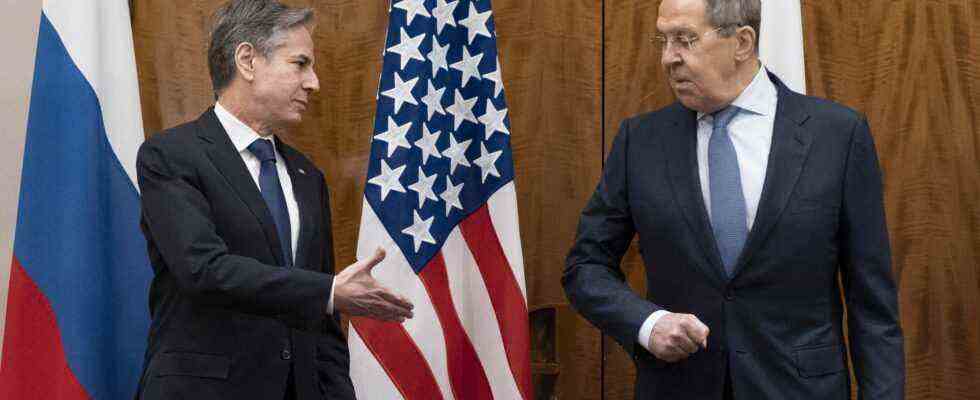comment
As of: 01/21/2022 7:20 p.m
It was the week of diplomacy: The German government is trying to contain the danger of war for Ukraine with a series of meetings with Russia and its allies. Kai Kuestner says that there have been no tangible successes so far.
There is one thing the Russian leadership really cannot complain about these days: a lack of attention. Blink meets Lavrov; Lavrov meets Baerbock; Baerbock first meets Lavrov, then Blinken – the wheel of crisis diplomacy is turning. And it must not come to a standstill, at least when it comes to the West: As a precaution, NATO is inviting Russia to further meetings.
People are talking to Russia more than ever before
The fact that the diplomatic wheel is being turned and that Moscow is being talked to more than ever before is good news. The problem: It’s almost the only one. So far there has not been any concession or even the slightest sign of a relaxation from Russia. On the contrary: the number of troops has also grown in Belarus, and Moscow announced new military exercises in the middle of the week of crisis talks.
The past few days have provided a bit more clarity in some respects: Even a newly appointed German foreign minister can easily take on a political warhorse like Sergei Lavrov, as long as she is well prepared. As full of praise as Annalena Baerbock’s smartphone inbox may have been after her Moscow performance, her hands were empty on the way home when it came to tangible promises from Russia. In any case, there is no indication that the four-man Normandy format so praised by Berlin has been breathed back into life.
Nord Stream 2 is also not excluded from sanctions
It has also been a little clearer since this week that the highly controversial Nord Stream 2 Baltic Sea pipeline does not fall under the social democratic species protection directive after all: “Everything is on the table” when it comes to possible sanctions in the event of a Russian attack on Ukraine SPD Chancellor Olaf Scholz clear. Quite late and against the will of many in his party. And questions still remain unanswered: It is a mystery why the traffic light coalition and in particular the Social Democrats could not put the much-vaunted price tag, i.e. the economic costs that Russia would have to fear in the event of an invasion, more clearly visible in the shop window.
Should Russia attack Ukraine, the Baltic Sea pipeline Nord Stream 2 is also up for debate.
Image: REUTERS
In contrast, the German government has been quick and unequivocal in clearing up Ukraine’s desire to get defensive weapons. But why actually? Especially since the Kremlin must once again get the impression that the Europeans are not in agreement, because the British are indeed supplying weapons.
USA with unclear signals
And last but not least: It was also of little help that US President Biden, in one of the most important speeches of his term of office, babbled and sowed doubts as to how closely the USA really stands on the side of Ukraine. So if Europeans and Americans want to keep the diplomatic wheel turning, which they absolutely should, they must do so with the greatest possible clarity in their messages. Yes, turning this wheel is laborious and the danger that Moscow will stop it abruptly is high. The more polyphonic and ambiguous Germany and the Europeans are in their announcements, the greater the danger that things will come to a standstill.
Editorial note
Comments always reflect the opinion of the respective author and not that of the editors.
Commentary: Russia – many talks, little relaxation
Kai Küstner, ARD Berlin, January 21, 2022 7:07 p.m

